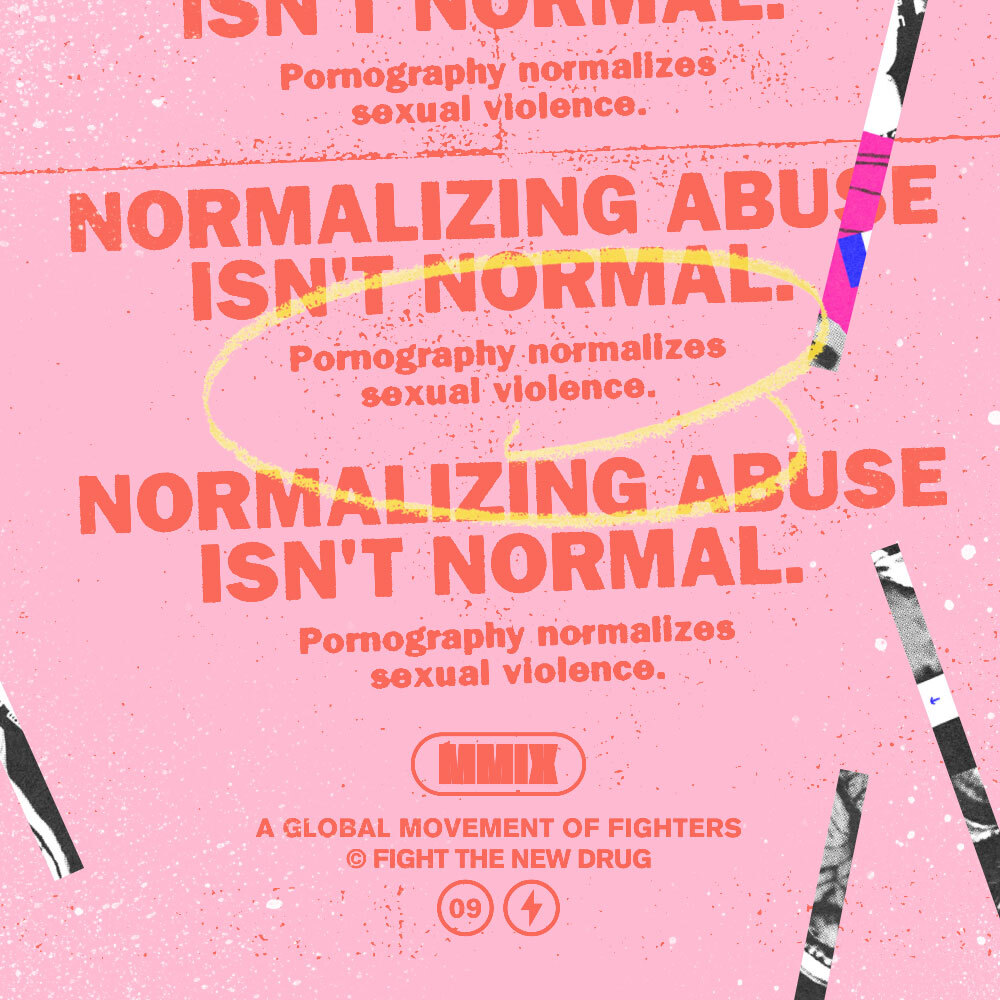Disclaimer: Some of the issues discussed in the following article are legislatively-affiliated. Fight the New Drug is a non-religious and non-legislative awareness and education organization hoping to provide access to resources that are helpful to those who need support. Including links and discussions about these legislative issues does not constitute an endorsement by Fight the New Drug.
Trigger warning:
“Rough sex gone wrong.”
This phrase, or one like it, is one you may have heard with greater frequency in the last few months as the defense used by those accused of manslaughter or murder charges for violence during sex.
Whether it’s the first time you’re registering it, or you’re already familiar with this issue, you’re probably going to continue hearing more of it, especially in the upcoming weeks. Why? The attention to the recent and tragic Grace Millane’s case has reopened a debate on this issue.
What happened to Grace Millane?
A little over a year ago, 21-year-old Grace Millane was found dead in a makeshift grave in the bushland area outside of Auckland, New Zealand.
Grace, a British tourist traveling the world, went to a casino on the eve of her 22nd birthday. Little did she know, she was on a Tinder date with a man who would eventually become her murderer. After going back to his hotel room, the 27-year-old defendant claimed that Grace had died as a result of “rough sex gone wrong;” in other words, “accidental strangulation” during rough, allegedly consensual, sex.
Despite the apparent accidental nature of what happened, he placed her body in a suitcase and buried her, hiding the evidence of her death, until the missing persons’ investigators were able to locate Grace’s remains. This, together with other pieces of evidence such as investigators’ discovery of his “morbid sexual interests” and pattern of sexual violence against women, were what led the jury to convict the defendant for murder, not manslaughter. He was sentenced on February 21st.
Grace’s case is certainly horrific, and while it is unique to New Zealand, being one of the first of its kind in the country, it is not the first case of its type to make headlines globally. It has again brought attention to the core issue involved in these types of cases—is the defense “sex games gone wrong” a legit one?
What’s the issue?
“Sex games/rough sex gone wrong” is an increasingly used defense to justify certain violent actions, typically accidental fatal strangulation, which lead to a partner’s injury or death during allegedly consensual sex. We Can’t Consent to This is a UK organization that has taken to mapping the 59+ cases where it has been used in recent years, and found that it has been successful in 40% of cases that reach trial, where the defendant has been acquitted or sentenced with manslaughter rather than murder.
Related: 10 Differences Between Healthy Sex And The Sex Porn Portrays
We Can’t Consent to This has been actively campaigning for more awareness to be brought to this defense, which they explain to be an excuse for inexcusable sexual violence, and working with Members of Parliament (MPs) to change the law permitting the use of this so-called “50 Shades Defense.”
Reintroducing: The Domestic Abuse Bill
In a bill currently making its way through Parliament, called the Domestic Abuse Bill, there has been more activity recently as it is being reintroduced in hopes of modification.
Domestic Abuse Commissioner Nicole Jacobs sides with organizations like We Can’t Consent to This, stating that the use of the “rough sex” defense implies that a dead woman’s entire sexual history and details can be scrutinized in court, with therefore no say on her part, and it allows her attacker(s) to get away with lighter sentences under the guise of increasingly normalized sexual practices.
Related: How Porn Fantasies Are Changing Our Generation’s Sexpectations For Reality
The issue has caused division because others argue that, as the bill stands, defendants are charged with manslaughter in case of a partner’s death during sex; it protects defendants from being accused of murder, which would imply intent to kill or to cause grievous bodily harm (GBH), evidently not the case in case of accidental death.
Common ground?
No matter which side someone sees the issue from, it’s pretty clear that these types of cases are appearing with greater frequency, and this indicates an increase in violence being found acceptable in sex.
Because we are pro-sex and pro-love, we are anti-porn. As part of our mission to educate on the harmful effects of porn and promote the importance and value in healthy relationships and real love, that includes talking about how pornography can normalize behavior that is less than safe and satisfying to both partners in a relationship.
Recently, studies have shown how sexual violence have made some partners feel very uneasy in their own relationships. A survey conducted by research company Savanta ComRes found that over 40% of women felt pressured at some point to engage in more degrading, rough, or violent sex acts.
Personal accounts support this as well: Anna, a woman who has spoken out regarding this issue, says that she has experienced unexpected violence during sex on three different occasions with three different men, saying, “I was shocked…I felt extremely uncomfortable and intimidated,” when they tried to pull her hair and unexpectedly grabbed her neck. One experience was so rough she was left with bruises for days. Comparing experiences with her friends, she realized it was a shared and increasingly normal experience.
Anna and another woman, Emma, who gave her story, defend two things we think are especially worth noting. First, regarding more extreme sexual preferences, Anna says, “I know some women will say they like this. What is problematic is when men assume that every woman wants this.”
Second, Emma makes a comment on where the ideas for this violence is coming from: “It felt like this was stuff he had seen online and wanted to play out in real life.”
Porn, the hidden culprit behind the violence?
Fiona Mackenzie, founder of We Can’t Consent to This, discusses the impact porn has on these cases:
“There’s one thing that’s extremely concerning which is the widespread normalization of violence against women in sex…We hear that pornography is normalizing the choking of women in sex—we hear from men who use pornography that that’s where it’s coming from.”
The Centre for Women’s Justice in the UK also supports this, stating that the increasing numbers show a, “growing pressure on young women to consent to violent, dangerous and demeaning acts…This is likely to be due to the widespread availability, normalization, and use of extreme pornography.”
Porn promises safe and exciting sex, and fails to deliver
The porn industry is a self-proclaimed entertainment industry. It benefits partially off of marketing violent and extreme content, which might not seem to be outrightly problematic. The issue? Unlike movies, whose viewers with little or no explanation required can separate fantasy from reality, porn attracts consumers with its appealing claim to be harmless entertainment and even more so, a manual for a more interesting sex life.
Yet, we know that’s a lie because porn’s increasingly degrading and violent content is often used as a reference for sex education for curious adolescents, and for inspiration for couples to casually implement in their sex life. The effect?
It is increasingly normalizing behavior that is at best, aggressive, and at worst, deadly.
The current 59 We Can’t Consent to This cases may represent the most extreme and tragic situations, but personal accounts from Anna and Emma confirm the toxic content contained within mainstream porn has made it into the personal lives of countless people—with the expectation that it is healthy behavior, even when they feel unsafe.
Violence in the fantasy porn industry, even when it’s nonconsensual, may be presented as attractive and normal, but we know the reality: violence isn’t sexy, it isn’t safe, and it’s not real love.

Your Support Matters Now More Than Ever
Most kids today are exposed to porn by the age of 12. By the time they’re teenagers, 75% of boys and 70% of girls have already viewed itRobb, M.B., & Mann, S. (2023). Teens and pornography. San Francisco, CA: Common Sense.Copy —often before they’ve had a single healthy conversation about it.
Even more concerning: over half of boys and nearly 40% of girls believe porn is a realistic depiction of sexMartellozzo, E., Monaghan, A., Adler, J. R., Davidson, J., Leyva, R., & Horvath, M. A. H. (2016). “I wasn’t sure it was normal to watch it”: A quantitative and qualitative examination of the impact of online pornography on the values, attitudes, beliefs and behaviours of children and young people. Middlesex University, NSPCC, & Office of the Children’s Commissioner.Copy . And among teens who have seen porn, more than 79% of teens use it to learn how to have sexRobb, M.B., & Mann, S. (2023). Teens and pornography. San Francisco, CA: Common Sense.Copy . That means millions of young people are getting sex ed from violent, degrading content, which becomes their baseline understanding of intimacy. Out of the most popular porn, 33%-88% of videos contain physical aggression and nonconsensual violence-related themesFritz, N., Malic, V., Paul, B., & Zhou, Y. (2020). A descriptive analysis of the types, targets, and relative frequency of aggression in mainstream pornography. Archives of Sexual Behavior, 49(8), 3041-3053. doi:10.1007/s10508-020-01773-0Copy Bridges et al., 2010, “Aggression and Sexual Behavior in Best-Selling Pornography Videos: A Content Analysis,” Violence Against Women.Copy .
From increasing rates of loneliness, depression, and self-doubt, to distorted views of sex, reduced relationship satisfaction, and riskier sexual behavior among teens, porn is impacting individuals, relationships, and society worldwideFight the New Drug. (2024, May). Get the Facts (Series of web articles). Fight the New Drug.Copy .
This is why Fight the New Drug exists—but we can’t do it without you.
Your donation directly fuels the creation of new educational resources, including our awareness-raising videos, podcasts, research-driven articles, engaging school presentations, and digital tools that reach youth where they are: online and in school. It equips individuals, parents, educators, and youth with trustworthy resources to start the conversation.
Will you join us? We’re grateful for whatever you can give—but a recurring donation makes the biggest difference. Every dollar directly supports our vital work, and every individual we reach decreases sexual exploitation. Let’s fight for real love:





